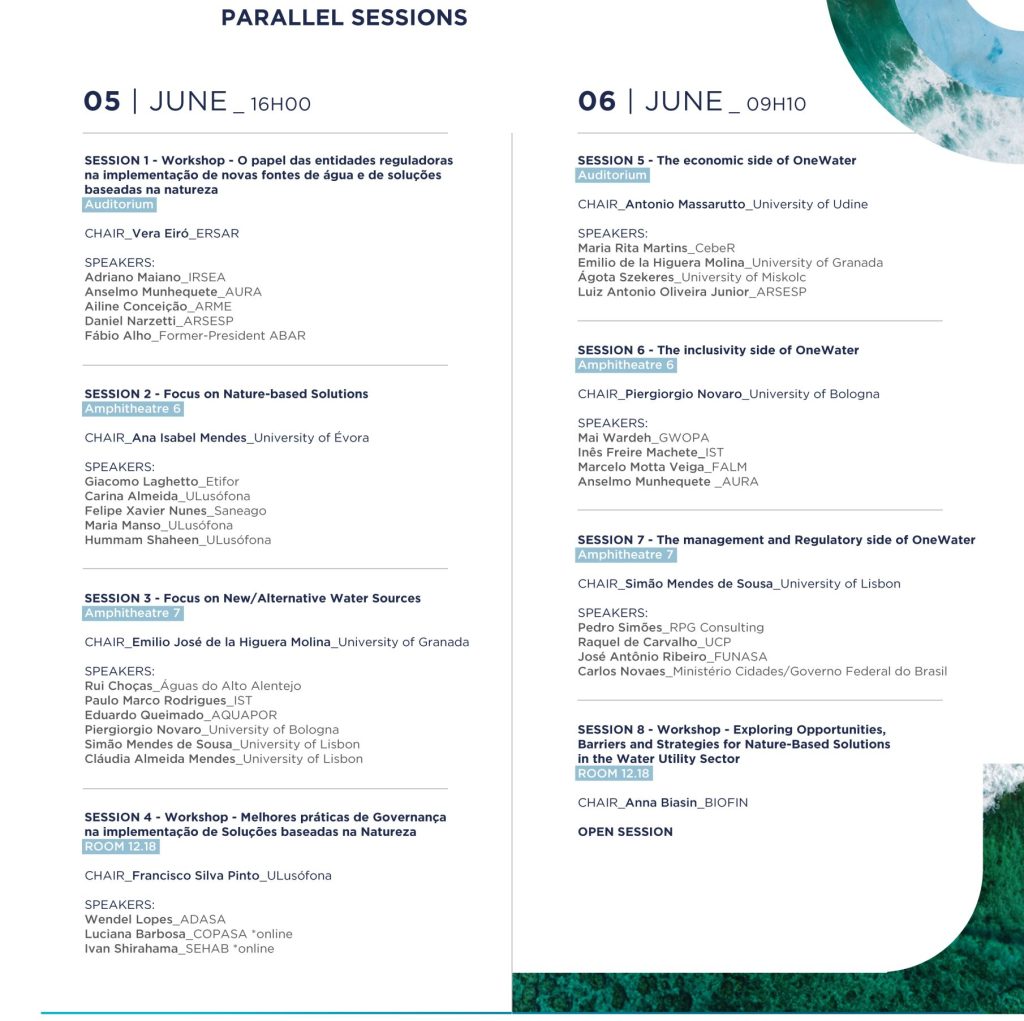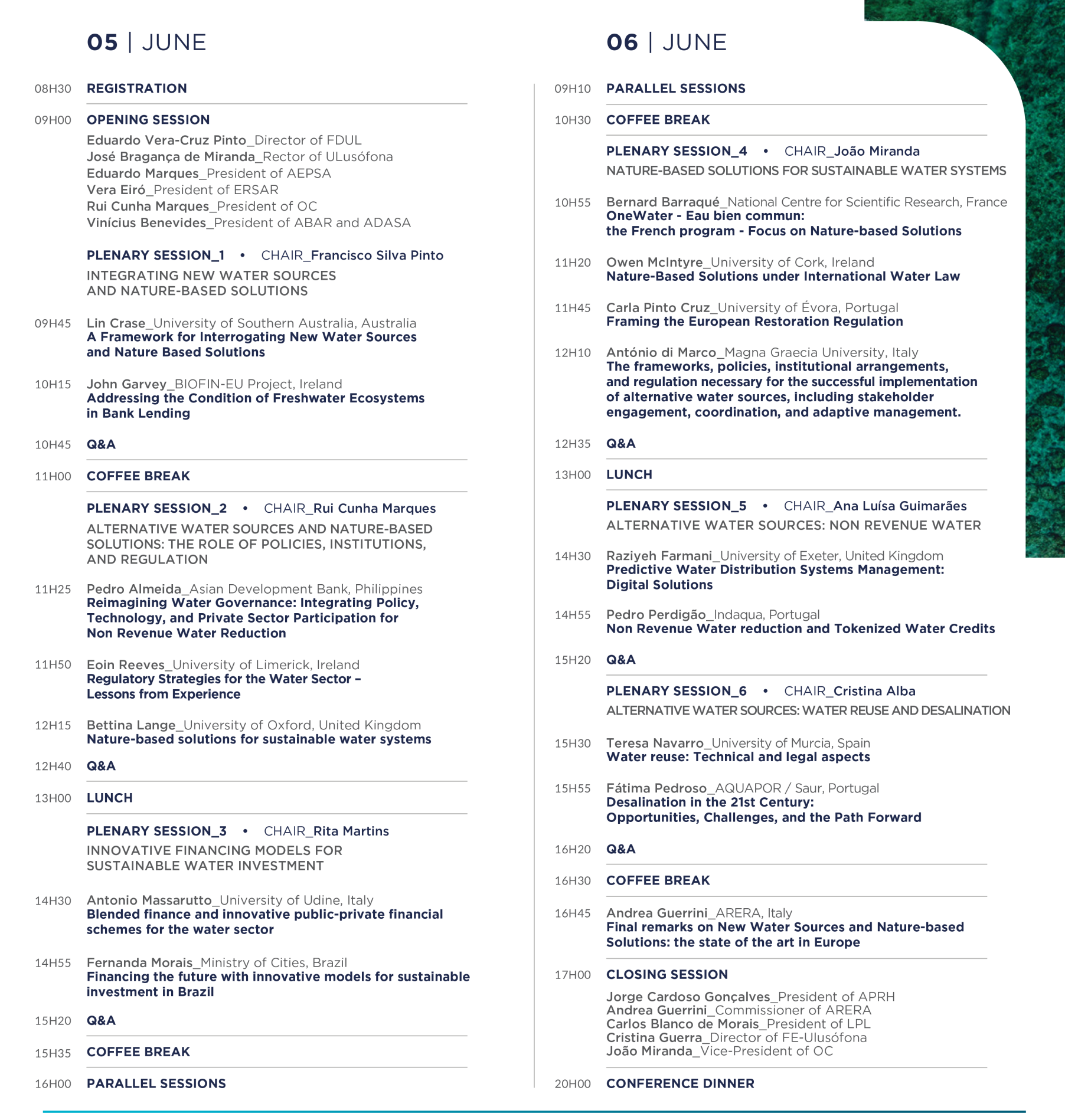
FIND OUT ALL ABOUT THE NEW 2025 EDITION
The OneWater 2025 concept highlights the interconnectedness of all water sources (such as water supply, wastewater, and stormwater) within the global water cycle, including its intrinsic subcycles and their dynamic co-evolution. Addressing water challenges requires a comprehensive approach that considers social transformation, environmental changes, and the ability to navigate complex problems. These challenges intensify competition over water resources between ecosystems and human needs, requiring the integration of social, hydrological, and environmental dimensions in both academic research and practical applications. However, in many municipalities, stakeholders operate independently, leading to fragmented decision-making and missed opportunities for sustainable water governance.
New and alternative water sources (AWS), such as desalination, wastewater reuse, and rainwater harvesting, are critical to addressing water scarcity and enhancing supply resilience. In parallel, nature-based solutions (NBS), as wetlands, terracing; infiltration channels, reforestation, and other green infrastructure, offer sustainable approaches to water management that enhance biodiversity, and ecosystem services improving water quality and quantity, and support climate adaptation. Integrating these solutions requires cross-sector collaboration and innovative policy frameworks to optimize their implementation and maximize benefits.
The OneWater2025 seeks contributions that explore developments in water resource management, the role of new/alternative water sources, and the implementation of NBS in addressing global societal challenges. We invite all actors, from the national and local governments to financial institutions, utilities, customers, and regulators, or from a slightly different point of view, from academics to practitioners to participate towards a more sustainable and resilient water future.

Speakers
Meet the speakers on the panels!















Main topics
- The role of AWS, as wastewater reuse, desalination, stormwater harvesting, among others, in supplementing traditional water supplies.
- The role of NbS, as wetlands, terracing; infiltration channels, reforestation, and other green infrastructure, to target global societal challenges.
- The frameworks, policies, institutional arrangements and regulation (PIR) necessary for the successful implementation of AWS and NbS, including stakeholder engagement, coordination, and adaptive management.
- Directing mainstream finance and innovative financial instruments/models able to support the large-scale implementation of AWS and NbS, including public-private partnerships, green bonds, and payment for ecosystem services.
- Integrated strategies across levels (e.g., global, national, regional, and local), and scales (e.g., urban areas, catchments, regions) for managing water, land, and related resources in a coordinated manner to optimize benefits.
- The interconnections between water, energy, and food systems (WEF nexus) and their implications for sustainable development.
- The role of innovative/smart water technologies and infrastructure, including digital technologies and data-driven approaches, towards sustainability (e.g., strategies to reduce non-revenue water through monitoring and leak detection).
- Investment priorities in infrastructure and the overall cost matrix (e.g., capital charges, operation and maintenance, opportunity costs, and externalities).
- The importance of effective inclusivity and stakeholder engagement (public/private) in implementing AWS and NbS. When and how?
- Capacity building to fulfil existing gaps in water supply, wastewater, drainage, and other infrastructure sectors towards AWS and NbS.







